Founded by Chelsea Brownridge, the Brooklyn-based startup Dog Parker installs community doghouses outside storefronts—it’s a secure, easy way to bring your dog with you wherever you go.
Winston is a terrier mix rescue with perky ears and plenty of energy. When his owner Chelsea Brownridge picked up coffee, stopped in the grocery store, or ran daily errands around her Brooklyn neighborhood, Winston was either stuck at home or tied up outside.
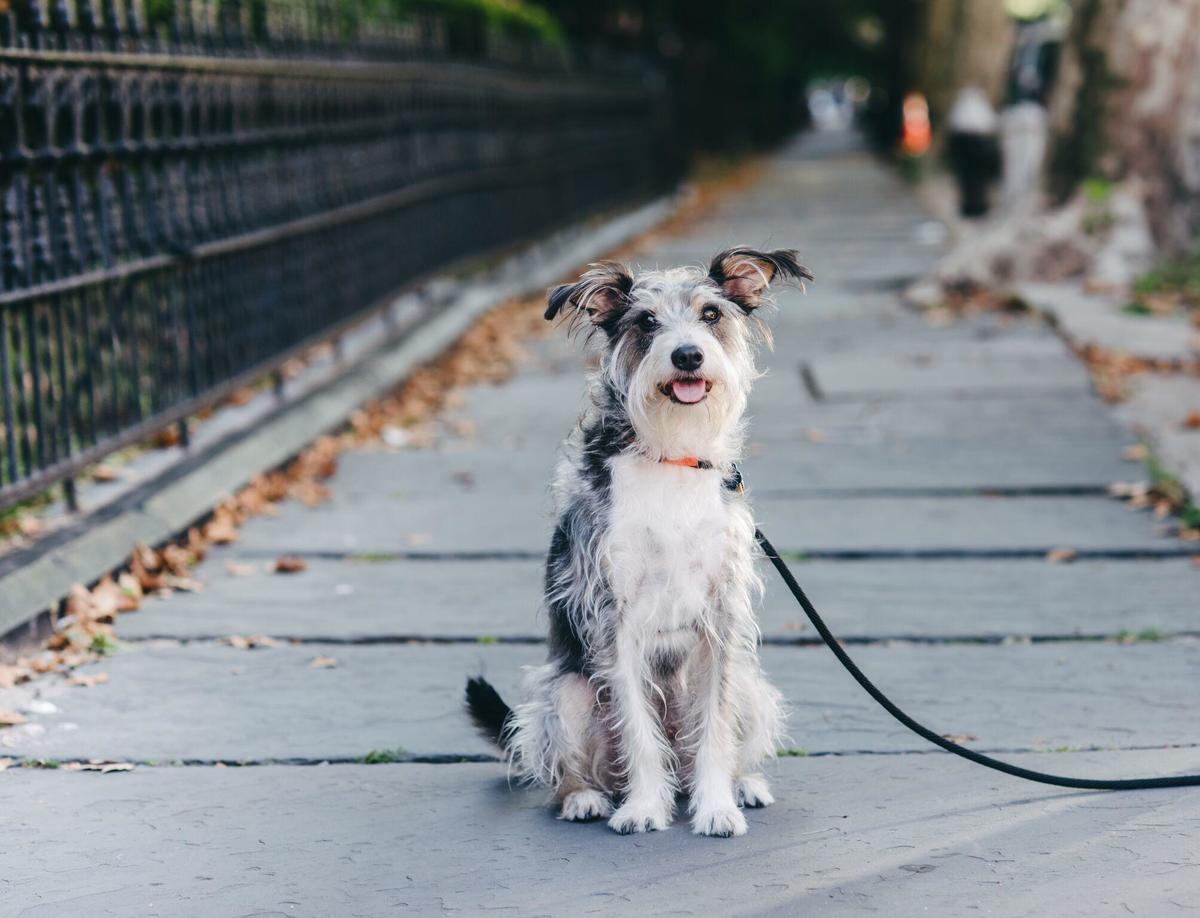
“It’s the city. It’s the busy streets of New York and Brooklyn, so when I’m out with my dog, there’s a problem that I’ve learned about here: in about 60% of stores, either because of food prep or other hygiene rules that they have on them, they can’t let dogs inside,” Brownridge said. “So, if you’re out with your dog in a city context, there’s a lot of places that you can’t go together.”
While Winston was inside a small New York City apartment, Chelsea still wished that he was by her side and worried about him being cooped up all day. He was alone, and, even in the bustling city, her neighborhood’s sense of community suffered.
“Dogs are more responsible for social communities than church,” Brownridge said. “That’s because when you have your dog out, people talk to the dogs and want to meet one another. There are community gathering places like dog parks, so it’s a way that people are meeting one another when a lot of the time, in this day and age, our faces are in our phones.”
Building Winston’s home away from home
Enter Chelsea’s solution to this dilemma: the Dog Parker, a smart house for dogs designed for quick stops, allowing pet owners to seamlessly include their dogs in their daily routines. One dog can stay in a Dog Parker for up to ninety minutes at a time, with owners paying twenty-cents per minute. Dog Parkers are located throughout Brooklyn, and, like so many other tech startups, this one began in a garage.
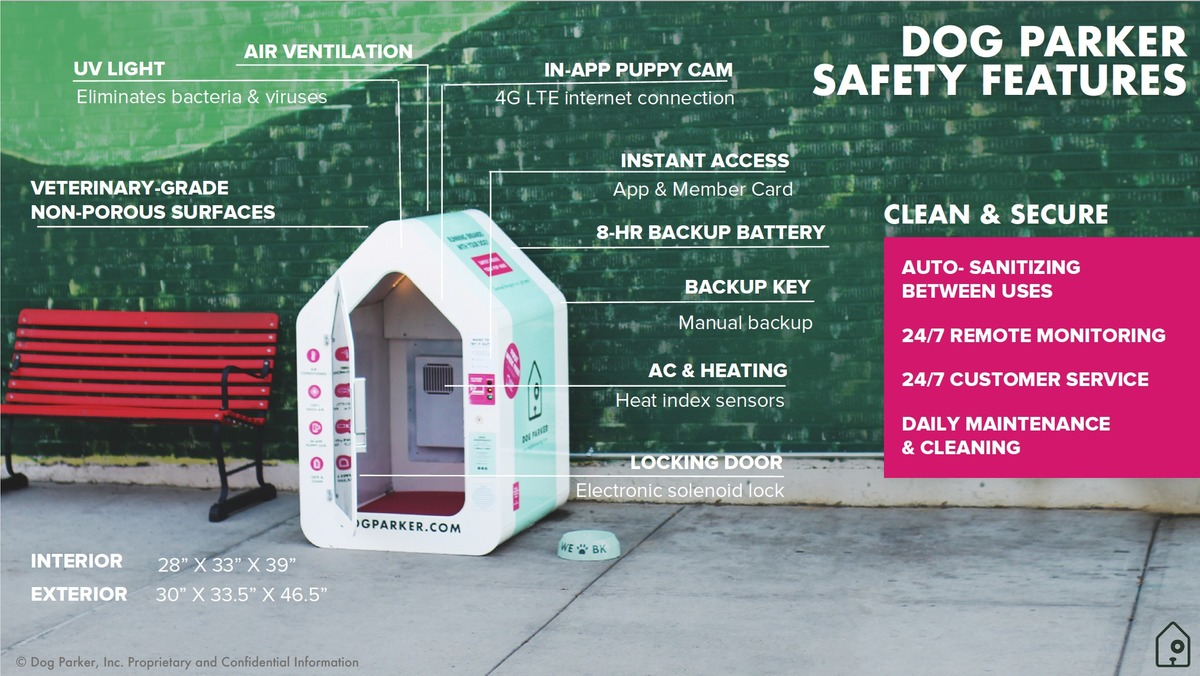
“It was a very classic startup situation … As you can imagine, there are all these things we have to reconsider to make this a safe, clean, comfortable environment for dogs. We’re dealing with family members—their loved ones—so we have to make sure that our options are top-notch … What if the power gets cut? What if someone forgets their dog, which has never happened? But all the what ifs and things you could think of—we’ve taken our time to consider very deeply,” Brownridge said.
The dog days of ordinances and regulations
Dog Parker is a one-of-a-kind service, and with that innovation came a series of obstacles and regulations before installing the Dog Parkers on the Brooklyn streets and, in the future, sidewalks in new cities.
“Doghouses are not something that’s explicitly in any city’s rules,” Brownridge said. “So, what we’re doing, in some cases, is launching pilot programs … In other cases, it takes about four weeks in most cities to introduce a new ordinance to allow for some new law … Cities are really excited by what we’re doing, because it increases walkability. Cities want to have smart city infrastructure. It improves the everyday lives of dog owners, and it drives the economic development.”
Dog houses are a brick-and-mortar’s best friend
Dog Parker specifically helps small businesses by allowing dog owners to fit local supermarket stops and coffee runs in to morning dog walks.
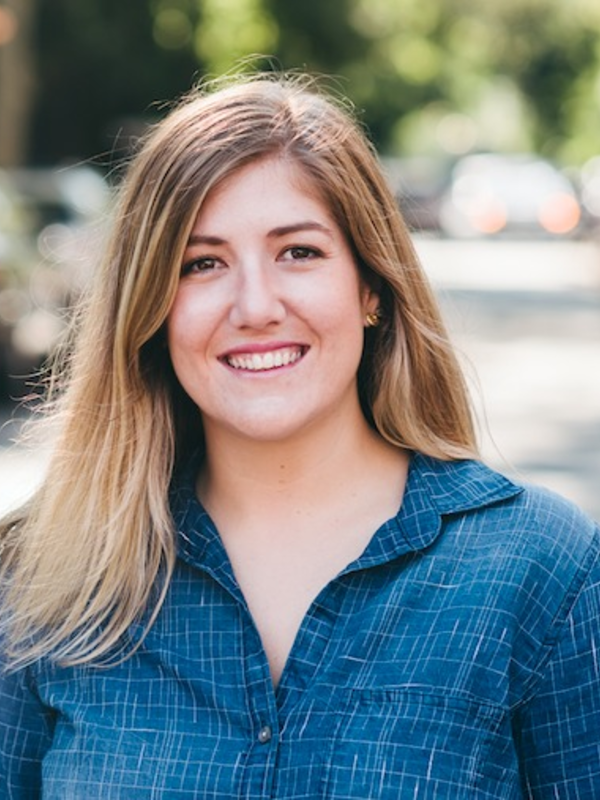
“Brick-and-mortars are struggling more and more, with online shopping, and mom and pop shops, grocery stores—they’re all trying to figure out ways to better attract customers … So, we are drawing business, more walk-ins, more foot traffic, and so that’s what’s really exciting for our store partners.” – Chelsea Brownridge, Founder @ Dog Parker
From nonprofits to smart technology
Both Brownridge and her cofounder, Todd Schechter, came from nonprofit backgrounds. When the pair was developing the sophisticated technology that would help remotely monitor and control Dog Parkers across the city, their mentor through New York City’s Next Top Makers program, Chris Quintero, was vital in leading the team through the startup’s early stages. Quintero helped the Dog Parker founders conceptualize the Dog Parker’s unit economics—a model that considered costs, profits and margins.
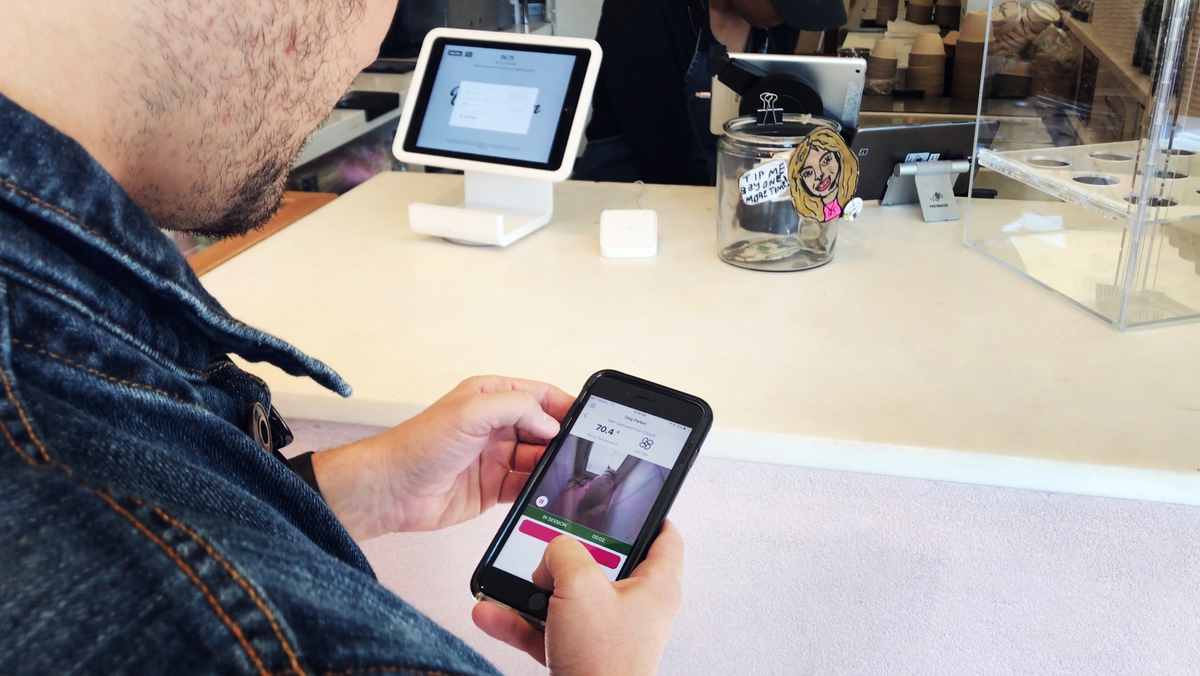
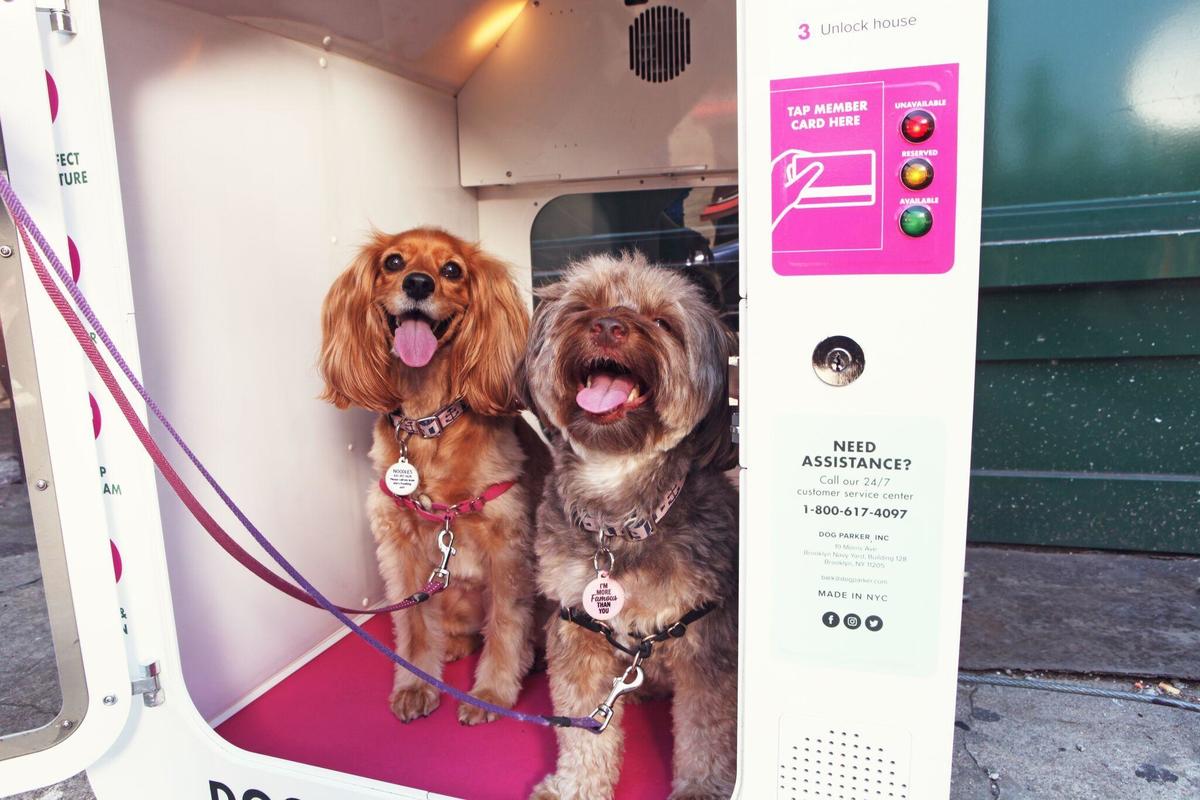
“We were passionate about solving a personal problem, but we didn’t have, on paper, the things that would make us an obvious choice to do this … [Unit economics] was language in a way of talking about our business so we could attract investments … I don’t think, without him, we would have been on such a path to raise the money we raised, to talk about our business in a sophisticated way, to be able to even understand what we should be able learning and thinking about,” Brownridge said.
What’s next for Chelsea, Winston, and Dog Parker?
Three years after Dog Parker’s establishment, the excitement has not worn off for Brownridge and her co-founders.
“Every time a session starts, we get an email that says so and so has started a session at [this] location … We started with … maybe just once, twice a day, we would get this email, and it was so exciting—someone is using one of the houses,” Brownridge said.
“Then it became like eight to ten a day. Then it became twenty and thirty and forty, and it just kept growing every day … It’s been amazing to look back and remember how excited we were to just get one of those a day.”
Today, with those emails flooding the Dog Parker inboxes, the company has plans to expand to more cities, though they can’t release specifics yet. By moving beyond traditional fundraising strategies, Brownridge and her co-founders are able to gauge the public interest in bringing Dog Parker’s community doghouses to cities across the country.
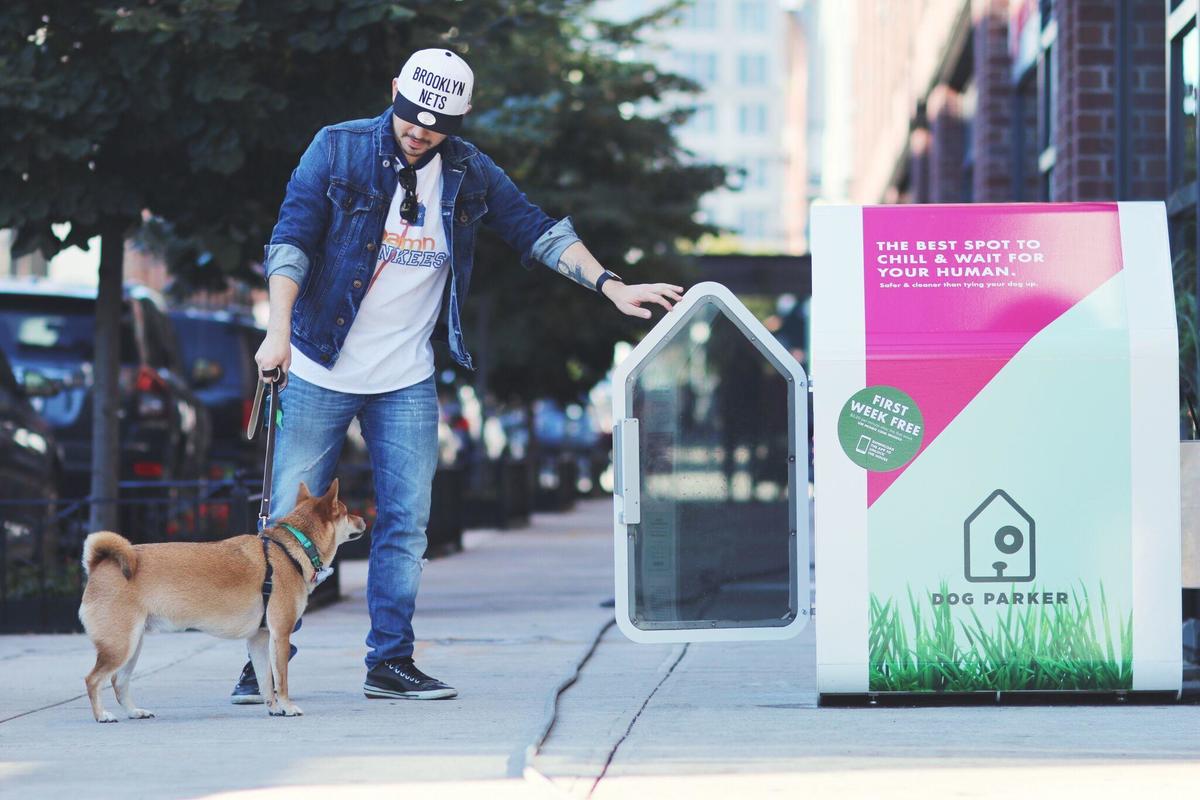
“We’re doing a crowd-sourced equity deal on WeFunder [wefunder.com/dog.parker] … We’ve had a lot of success raising money in traditional ways, and with how much this has resonated with people, we’ve made it publicly available for people to invest at our current terms,” Brownridge said. “What we partially hope to get from that is people’s enthusiasm to help bring us to their community.”
Even with Dog Parker’s success in Brooklyn neighborhoods, Brownridge admits that the journey has not been easy; her story has instead been filled with entrepreneurial highs and lows that make the rewards well worth the risk.
“It’s scary for everyone, and I’m not alone in that,” Brownridge said. “Every entrepreneur has their stories of sacrifice—financially, personally, whatever it is. I guess [knowing] that we would be here today … would have given me some peace of mind back then, but I’m proud to look back and know we took that risk and that it worked out.”
